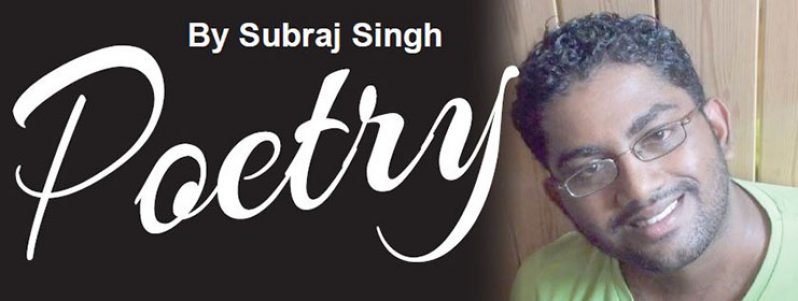CONGRATULATIONS, Guyana, on making it to 51 years since Independence. Congratulations to us on ridding ourselves of colonial masters and colonial mentalities. Congratulations to us on ending racial disharmony. Congratulations to us on developing and sustaining a beneficial

(Image via: Stabroek News)
political system. Congratulations to us on ensuring that the rights of others are protected, that the environment is protected, that our children are protected. Congratulations to us on making Guyana a wealthier, better, stronger, more focused nation. Congratulations!
Of course, the entire previous paragraph was written in a thick sarcasm that if not identified by you, good reader, clearly indicates that I need to work on my sarcasm in writing or that you need to take off your blinders and see the country for what it is. Yes, half a century after independence has given us some improvement, but in most areas, especially the areas identified in paragraph one, we, as a country, and as a people, have failed miserably. If there was a literary work in all of Guyanese history that best responds to the current situation that Guyana and its people are in, it would be Martin Carter’s excellent, and rather well-known, “You Are Involved”, a poem where the title of the poem itself rings through with the lesson it holds at the center of itself for all Guyanese to adhere to.
“Today a speck / tomorrow a hero / hero or monster / you are consumed!” is a part of the opening line that tells us from the very beginning what the poem is about, what the concerns of the poet are. The immediacy of the intentions of the poet/persona is important because it conveys a sense of urgency, as if Carter wants the reader to understand the concept that whether hero or monster, whether politician or pauper, man or woman, elders or children, African or Indian, good people or bad people, we are all eventually “consumed.”
Does this consumption refer to death? Does it mean consumed in the process of our actions and inactions, consumed because of our decisions, because of our history and its relation to our present and future?
Regardless of what specifically is meant by Carter, the remaining and underscored idea is that we are consumed, despite who we are and what we have done – implying non-discrimination in the consumption, and further implying that togetherness, a unity, and an equality where every individual is consumed alongside his/her neighbour. The lines, therefore, can be read as strongly seeking to impart the idea that we are all in this, whatever “this” is, together, something that can be strongly applied to the Guyanese situation as well.
“Like a web / is spun the pattern / all are involved! / all are consumed!” reads the last section of “You Are Involved”, which is really one of Carter’s shortest poems. The lines in that last section reaffirm this sense of togetherness that began at the beginning of the poem. The imagery of the web emphasizes the idea that we are trapped together, connected together, and inevitably bound together, and this is why we are all involved, and, also, why we are all consumed – and, therefore, why we must all share responsibility (for change, for the representation of our desires, for betterment) or risk becoming even more lost, more divided, and more fallen as a nation.
I do not mean to be cynical, but to celebrate fifty one years of Independence simply for the sake of doing so, while the country and its people continue to stew in a vat of problems that have existed since before independence itself seems a bit contradictory. It is true that a lot has changed and things are much better today in Guyana, but it is also true that a lot remains unchanged, and the key to solving these problems, the key to fixing ourselves and our country lies in the heart of Martin Carter’s poem. It is a reminder that we are responsible for ourselves and for each other, and the way forward is one that forces us to rely on each other in order to make this country what we want it to be.



.jpg)








